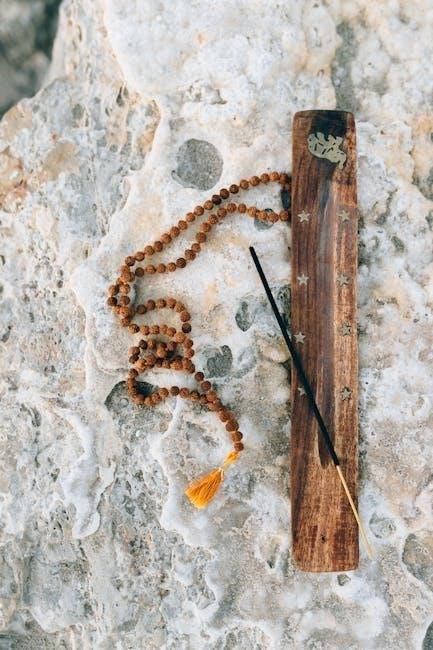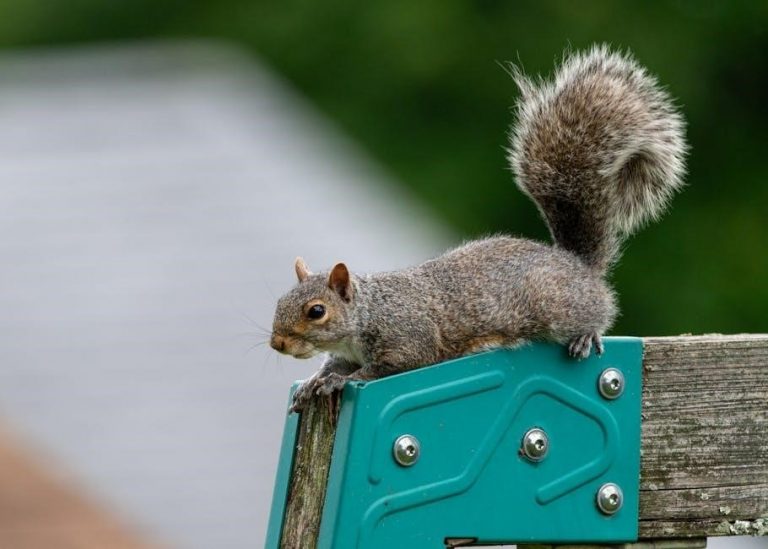The savannah is a unique ecosystem characterized by vast grasslands and diverse wildlife. It offers breathtaking landscapes, from golden sunrises to thrilling game drives, making it a must-visit destination for nature enthusiasts and adventurers alike.
What is the Savannah?
The Savannah is a vast tropical grassland ecosystem characterized by open spaces, scattered trees, and diverse vegetation. It is home to a wide variety of wildlife, including iconic animals like lions, elephants, and giraffes. The Savannah spans across several African countries and is known for its dynamic landscape, which supports a rich biodiversity. Its unique combination of grasslands and savanna woodlands creates a habitat for both flora and fauna, making it one of the most fascinating ecosystems on Earth. The Savannah is a symbol of Africa’s natural beauty and resilience.
Why is the Savannah Important?
The Savannah is crucial for biodiversity, hosting numerous species of plants and animals. It provides habitats for iconic animals like lions, elephants, and giraffes, maintaining ecological balance. Indigenous communities rely on it for livelihood and cultural practices. The Savannah also plays a key role in carbon sequestration, mitigating climate change. Its vast landscapes support agriculture, tourism, and wildlife conservation, making it vital for both local economies and global ecological health. Preserving the Savannah ensures the survival of its unique ecosystem and the benefits it provides to humanity and the planet.

Planning Your Savannah Trip
Planning a Savannah trip involves choosing the right season, packing essentials like binoculars and sturdy clothing, and arranging reliable transportation for a seamless adventure.
Best Time to Visit the Savannah
The best time to visit the Savannah is during the dry season, typically from May to October, when wildlife gathers around water sources, making animal spotting easier. The weather is mild, with clear skies ideal for game drives and birdwatching. Avoid the rainy season, as roads become impassable and vegetation thickens, reducing visibility. Plan your trip according to your preferences: cooler months for comfort or warmer periods for vibrant landscapes and migratory bird sightings.
How to Get to the Savannah
Reaching the Savannah typically involves flying into a major international airport near the region, such as Nairobi or Arusha, before taking a domestic flight or charter to a smaller airstrip. Many lodges offer transfers from these airstrips to your accommodation. For road travelers, 4×4 vehicles are recommended due to rough terrain. Booking flights and transfers in advance is essential, especially during peak seasons. Some tour operators also provide shuttle services, making it easier for visitors to plan their journey seamlessly.
Essential Items to Pack for a Savannah Trip
Packing the right gear is crucial for a comfortable and enjoyable Savannah experience. Bring lightweight, neutral-colored clothing, sturdy hiking boots, and a hat for sun protection. Insect repellent, sunscreen, and binoculars are must-haves for wildlife viewing. Include a reusable water bottle, power bank, and camera for capturing memories. Don’t forget essentials like medications, a first-aid kit, and travel documents. Check the weather forecast and pack accordingly, ensuring respectful attire for cultural visits. Avoid bright colors to blend in during game drives.

Wildlife and Ecosystems
The Savannah is renowned for its rich biodiversity, hosting iconic species like lions, elephants, and giraffes. Its ecosystem thrives on a delicate balance of predators, prey, and vegetation, creating a majestic natural harmony.
Major Wildlife Species in the Savannah
The Savannah is home to a diverse array of iconic wildlife, including lions, elephants, giraffes, zebras, wildebeests, and hyenas. Leopards and cheetahs roam as apex predators, while rhinos, buffaloes, and antelopes graze in abundance. These species thrive in the grasslands, adapting to the dynamic environment. The Savannah’s biodiversity is a testament to its ecological richness, offering unparalleled opportunities for wildlife observation and appreciation.
Understanding the Savannah Ecosystem
The Savannah ecosystem is a balanced network of grasslands, trees, and wildlife, shaped by seasonal rainfall and drought. It supports a rich biodiversity where predators and prey coexist. Grasses and acacia trees dominate, providing habitat for herbivores like zebras and antelopes, while predators such as lions and leopards thrive. The ecosystem relies on the rainy season for growth and the dry season for survival, creating a dynamic interplay of life and adaptation. Conservation efforts are crucial to maintain this delicate harmony and ensure the Savannah’s ecological integrity endures.

Game Drives and Safaris
Game drives and safaris offer thrilling experiences, allowing visitors to witness majestic wildlife like lions, elephants, and giraffes in their natural habitats. Expert guides enhance the adventure.
What to Expect on a Savannah Game Drive
A Savannah game drive is an exhilarating adventure, offering up-close encounters with diverse wildlife like lions, elephants, giraffes, and zebras. Expert guides provide insights into animal behavior and habitats, enhancing your experience. Drives often occur at dawn or dusk when animals are most active; Be prepared for thrilling moments, as well as periods of patience, as spotting wildlife can be unpredictable. The open landscapes and fresh air create a connection with nature. Each drive is unique, promising unforgettable memories of Africa’s wild beauty.
Tips for a Successful Safari Experience
For a memorable safari, plan according to the best wildlife viewing seasons and hire knowledgeable guides. Wear neutral, breathable clothing and sturdy footwear. Bring binoculars, a camera, and ample water. Stay patient and quiet during drives to maximize wildlife sightings. Respect animals’ space and follow guide instructions for safety. Avoid strong perfumes or bright colors that may attract unwanted attention. Stay hydrated, wear sunscreen, and be prepared for variable weather conditions. Prioritize ethical tourism by supporting eco-friendly operators and respecting local wildlife conservation efforts.
![]()
Birdwatching in the Savannah
The savannah offers a vibrant birdwatching experience with diverse species. From eagles to ostriches, the grasslands provide a perfect habitat for bird enthusiasts to explore and discover.
Popular Bird Species to Spot
The savannah is home to a wide variety of bird species, including eagles, ostriches, and vultures. Other notable birds are lilac-breasted rollers, secretarybirds, and hornbills. These species are easily spotted due to their vibrant plumage and unique calls. Birdwatchers often look out for migratory birds during specific seasons, adding to the diversity of sightings. With over 1,000 species documented, the savannah offers endless opportunities for enthusiasts to observe and learn about these fascinating creatures in their natural habitat.
Best Locations for Birdwatching
The savannah offers exceptional birdwatching opportunities across its vast landscapes. Key locations include the Maasai Mara in Kenya, known for its abundant birdlife, and the Serengeti in Tanzania, where migratory birds flock during the Great Migration. The Okavango Delta in Botswana is renowned for its waterfowl, while South Africa’s Kruger National Park boasts over 500 species. These regions provide ideal habitats for birds, with diverse ecosystems attracting both resident and migratory species, making them must-visit destinations for bird enthusiasts.
Cultural Experiences
Immerse yourself in the rich tapestry of Savannah cultures, exploring local tribes’ traditions, vibrant festivals, and historical sites. Engage with communities through workshops and storytelling sessions.
Local Tribes and Their Traditions
The Savannah is home to diverse indigenous tribes, each with unique customs and traditions. From vibrant rituals to oral storytelling, these communities showcase rich cultural heritage. Many tribes rely on sustainable practices, blending with the environment. Visitors can engage with local traditions through workshops, witnessing ceremonies, and learning crafts. These interactions offer insights into the tribes’ history and their deep connection to the land. Such experiences foster mutual understanding and appreciation for the Savannah’s cultural diversity, making them unforgettable highlights of any trip.
Cultural Tours and Workshops
Cultural tours and workshops in the Savannah offer immersive experiences, allowing visitors to connect with local traditions and communities. From traditional cooking classes to crafting sessions, these activities provide insights into the daily lives and customs of indigenous tribes. Visitors can engage in storytelling sessions, learn traditional dances, or participate in hands-on workshops. Such experiences not only enrich travelers’ understanding of Savannah culture but also support local economies. Whether it’s a guided tour or a community-led workshop, these opportunities foster meaningful connections and lasting memories.

Conservation Efforts
Conservation efforts in the Savannah focus on protecting endangered species, combating poaching, and preserving habitats. Community-led initiatives and sustainable practices ensure the ecosystem’s balance and biodiversity for future generations.
Importance of Conservation in the Savannah
Conservation in the Savannah is crucial for preserving biodiversity, ensuring the survival of iconic species, and maintaining ecological balance. Protecting habitats prevents extinction, supports climate regulation, and sustains local communities. Efforts combat poaching, habitat loss, and human-wildlife conflict, promoting sustainable land use. Conservation also safeguards water resources and cultural heritage tied to the land. By addressing these challenges, we ensure the Savannah remains a thriving, natural wonder for future generations, supporting both wildlife and human well-being through responsible stewardship.
How You Can Support Savannah Conservation
Supporting Savannah conservation involves taking actionable steps to protect its ecosystems. Donate to reputable organizations focused on habitat preservation and anti-poaching efforts. Spread awareness about the importance of conservation through education and advocacy. Participate in eco-friendly tourism by choosing sustainable safari operators. Reduce your carbon footprint to help mitigate climate change impacts. Engage in citizen science projects or volunteer programs that contribute to research and conservation efforts. Every individual action, no matter how small, plays a vital role in safeguarding the Savannah’s future for generations to come.

Safety Tips
Plan carefully, stay informed, and carry essentials like water, maps, and emergency supplies. Be aware of your surroundings to ensure a safe Savannah experience;
Staying Safe During a Savannah Adventure
Staying safe in the Savannah requires careful planning and awareness. Always travel with a guide or group, as they know the terrain and wildlife behavior. Stay alert to your surroundings, especially during walks or drives, and avoid approaching animals too closely. Carry essentials like water, a first-aid kit, and a map. Respect the environment and wildlife, as this helps maintain a safe and balanced ecosystem. Be prepared for changing weather conditions and keep emergency contact details handy. Stay informed about local safety guidelines to ensure a secure and enjoyable experience.
Emergency Procedures in the Savannah
Being prepared for emergencies is crucial in the Savannah. Always carry a first-aid kit, a map, and a means of communication. Stay with your guide or group, as they are trained to handle emergencies. Know the protocols for animal encounters and keep emergency contact details handy. In case of severe weather, seek shelter immediately. Ensure your vehicle is in good condition and carry extra water and supplies. Familiarize yourself with local emergency services and evacuation routes. Stay calm and follow instructions from guides or authorities to ensure safety in critical situations.
Accommodation Options
The savannah offers a variety of accommodation options, including luxury lodges, cozy resorts, and camping sites, catering to different preferences and budgets for an unforgettable experience.
Lodges and Resorts in the Savannah
The savannah is home to luxurious lodges and resorts that offer stunning views of the wild landscape. Many of these accommodations provide private decks, swimming pools, and fine dining options. Jambo House and Kidani Village, for instance, are known for their savanna views and immersive wildlife experiences. Eco-lodges and boutique resorts emphasize sustainability, blending seamlessly into the natural environment. These establishments often feature cultural activities, such as traditional cooking classes and local art workshops, enhancing the overall savannah experience. Whether you prefer luxury or eco-friendly stays, there are options to suit every traveler’s needs and preferences.
Camping in the Savannah: Pros and Cons
Camping in the savannah offers a unique, immersive experience, allowing you to connect with nature and witness wildlife up close. Pros include breathtaking views, stargazing opportunities, and a chance to disconnect from urban life. However, cons such as unpredictable weather, limited amenities, and safety concerns regarding wild animals exist. Jambo House and Kidani Village, for instance, offer savanna views but may not suit everyone due to their specific requirements. Planning and preparation are key to ensuring a safe and enjoyable camping adventure in this stunning yet challenging environment.

Photography in the Savannah
The savannah offers incredible photography opportunities, with golden hours providing stunning lighting for capturing vibrant wildlife and expansive landscapes. Plan around sunrise and sunset for optimal shots.
Best Practices for Wildlife Photography
Wildlife photography in the savannah requires patience and precision. Use a telephoto lens for intimate shots without disturbing animals. Shoot during golden hours for soft, warm light. Keep a safe distance to respect wildlife and avoid stress. Never bait or lure animals for a shot. Anticipate behavior, like hunting or migration, for dynamic captures. Experiment with composition, blending animals with the savannah’s iconic grasslands and acacia trees. Always follow ethical guidelines to ensure both your safety and the well-being of the animals.
Capturing the Beauty of the Savannah Landscape
The savannah’s vast, open plains and dramatic skies create a photographer’s paradise; Use a wide-angle lens to capture the expanse of grasslands and distant horizons. Shoot during golden hours for soft, warm light that enhances textures and colors. Incorporate iconic acacia trees or termite mounds as focal points. Experiment with low angles to emphasize the landscape’s depth and leading lines. Pay attention to the interplay of light and shadow, especially during sunrise and sunset, to create striking, memorable images that reflect the savannah’s unique beauty and serenity.

Plants of the Savannah
The savannah is dominated by grasses, Acacia trees, and shrubs, with termite mounds adding unique landscape features. These plants are highly adaptable, supporting wildlife and local communities.
Common Plant Species in the Savannah
The savannah is home to iconic plant species like Acacia trees, known for their thorny branches, and various grasses such as tall elephant grass and shorter turf grasses. Shrubs like Commiphora and succulents thrive in arid conditions. Baobab trees, with their massive trunks, are a striking feature, while papyrus and reeds dominate wetland areas. These plants are adapted to survive the harsh, seasonal climate, providing vital resources for wildlife and supporting the rich biodiversity of the savannah ecosystem.
Medicinal Uses of Savannah Plants
The savannah is a treasure trove of plants with remarkable medicinal properties. Acacia trees are used to treat wounds and fever, while Commiphora provides resin for antiseptic purposes. Aloe vera, found in some regions, soothes burns and skin conditions. Many shrubs and grasses have anti-inflammatory properties, and local communities rely on these plants for traditional remedies. The Baobab tree’s bark and leaves are used to treat digestive issues, showcasing the savannah’s role as a natural pharmacy, sustainably supporting health and wellness for generations.

Travel Journal and Memories
Documenting your Savannah journey in a travel journal captures memories, emotions, and reflections. Record daily observations, note unique wildlife encounters, and collect ticket stubs or photos as lasting mementos.
Keeping a Travel Journal in the Savannah
Keeping a travel journal in the Savannah is a meaningful way to document your journey and reflect on your experiences. Write about the wildlife you encounter, the landscapes you witness, and the emotions evoked by the vast, natural beauty. Include sketches, ticket stubs, or photos to make it personalized. Carry a sturdy notebook and waterproof pen to withstand outdoor conditions. Journaling helps preserve memories and allows you to relive your adventure long after you leave. It’s a cherished keepsake of your time in the Savannah.
Capturing Memories Through Photography and Writing
Capturing memories in the Savannah through photography and writing is a wonderful way to preserve your experiences. Use a camera or smartphone to photograph stunning landscapes, wildlife, and vibrant colors. Consider golden hours for optimal lighting. When writing, describe the sights, sounds, and emotions evoked by the environment. Carry a notebook to jot down observations or inspiring moments. Combine photos and journal entries to create a unique keepsake. These practices allow you to relive your Savannah adventure and share it with others, ensuring your memories remain vivid and cherished.
The Savannah offers an unforgettable blend of natural beauty, wildlife, and cultural richness. Whether through photography, journaling, or exploration, it leaves an indelible mark on every traveler.
Final Thoughts on the Savannah Experience
The Savannah is a realm of unforgettable moments, where the rhythm of nature harmonizes with the thrill of discovery. From the golden hues of sunrise to the exhilarating encounters with wildlife, every experience leaves a lasting impression. The Savannah teaches us to appreciate the beauty of the wild and the resilience of life. Whether through the lens of a camera or the pages of a journal, the memories collected here are timeless. Embrace the adventure, respect the land, and let the Savannah’s spirit stay with you forever.
Encouragement to Explore More
Embark on the Savannah adventure with an open heart and mind, for it promises unforgettable experiences. Each journey reveals new wonders, from vibrant wildlife to serene landscapes. The Savannah is more than a destination—it’s a journey of discovery, connecting you with nature and inspiring personal growth. Whether you’re a first-time visitor or a seasoned explorer, the Savannah’s untamed beauty and rich culture will leave you yearning for more. Take the leap, immerse yourself in its magic, and let the Savannah forever capture a piece of your soul.
Resources for Further Reading
Discover more about the Savannah through recommended books like “Savannah Ecology” and explore online resources such as National Geographic for deeper insights into its ecosystem and wildlife.
Recommended Books on the Savannah
For a deeper understanding of the Savannah, consider reading “Savannah Ecology and Management” by Alan K. Knapp and Michael D. Smith, which explores the ecosystem’s dynamics. “The Savannah River Site” by J. Whitfield Gibbons offers insights into its ecological significance. “Savannah: A Historical Journey” by James C. Cobb provides a historical perspective, while “Wildlife of the Savannah” by Martin B. Withers focuses on its diverse fauna. These books, along with “Savannah: The Endless Steppe” by Peter Matthiessen, are essential reads for enthusiasts and researchers alike.
Online Resources for Savannah Enthusiasts
Explore the Savannah through online resources like SavannahGuide.com, offering detailed trip planners and wildlife spotting guides. NationalGeographic.com provides stunning photography and ecosystem insights, while SafariBookings.com helps plan unforgettable safaris. For conservation updates, visit WildlifeConservationSociety.org. Engage with forums like SavannahForums.net to connect with enthusiasts and share experiences. These resources cater to all interests, from adventure seekers to nature lovers, ensuring a comprehensive understanding of the Savannah’s beauty and significance.




